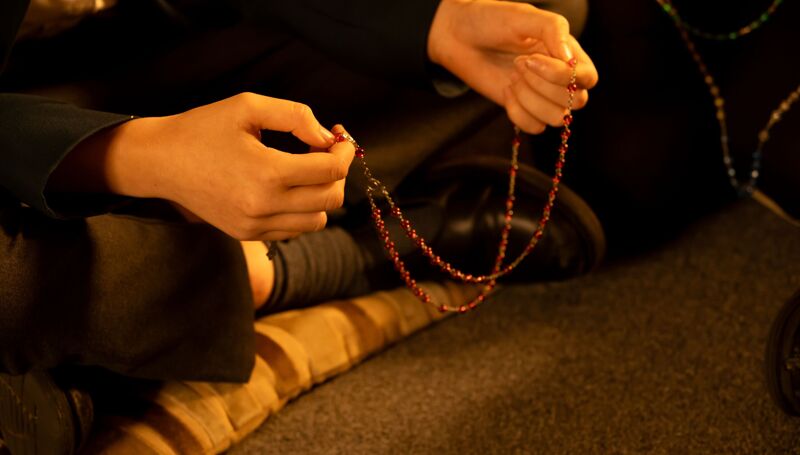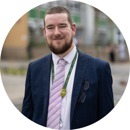- Home
- Parents & Carers
- News
- This week in our school community: 31 J...
This week in our school community: 31 January 2025

“Learn to do right; seek justice. Defend the oppressed.” (Isaiah I:17)
Earlier this week the coverage of Holocaust Memorial Day in the media was poignant and hard hitting in equal measure. In school we have committed to trying to use the Jewish term for the atrocities that took place, 'Shoah', as the traditional English word we use, 'Holocaust', is biblically linked to willing sacrifice wholly burnt up. The modern Hebrew term, ‘Shoah’, has no religious or sacrificial overtones. It is a powerful term, which comes into modern Hebrew from biblical Hebrew, and means “devastation, desolation, or ruin that affect man, nature, and land.”. Because Shoah is a Hebrew term, it forces us, unlike the English ‘holocaust’ to focus on the Jewishness of the victims. Whereas ‘holocaust’ is inevitably a God-focused word, because of its older meaning, the word ‘Shoah’ (devastation, destruction) is human-focused and is not loaded with theological overtones. Language determines how we think. If we call the slaughter of six million Jews a ‘holocaust’ we are unconsciously connecting victims of genocide with “sacrificial victims,” and perpetrators of murder and genocide with Levites and Temple priests.
The Holocaust memorial trust encouraged us to reflect this year on the theme of “for a better future” and when sitting this alongside the beginning of our jubilee theme, pilgrims of hope, the story of Sir Nicholas Winton is a beautiful way of looking at how to move forward. The film adaptation of his life, 'One Life', starred the incredible Sir Anthony Hopkins and tells the inspirational story of Sir Nicholas devoting everything to saving Jewish children in Czechoslovakia but then humbly keeping his endeavours a secret for the next 50 years. As a man who brought so much hope and a future to over 600 children we wanted, as part of our commemoration in Chaplaincy, to create artwork centred on the flame of hope he lit for many. .
I would like to leave the main reflection this week to one of our sixth form students, Imogen B, who has been a vocal advocate for education on the subject, taken part in the lessons from Auschwitz programme for young people and visited the concentration camp twice recently. I would like to thank her for taking the time out of a busy mock season to share these thoughts with all of us:
This Holocaust Memorial Day marks the 80th anniversary of the liberation of Auschwitz-Birkenau, the largest Nazi concentration camp. Following the 7 October attacks in Israel by Hamas and the subsequent war in Gaza, antisemitism and islamophobia has increased significantly in the UK and globally. This year’s Holocaust Memorial Day is focused on the theme of taking action for a better future. We can learn both from and about the Holocaust and more recent genocides, in order to recognise and prevent these atrocities from being continuously repeated. Genocide is a process that develops in stages that are predictable and by learning about the Holocaust, we can identify the warning signs in the world around us. Today, Holocaust distortion, denial and trivialisation are all increasing. These views perpetuate long standing antisemitic stereotypes which helped lay the groundwork for the Holocaust. In 1933, the Nazis were able to build upon centuries of antisemitism and immediately begin the persecution of Jewish people. Ultimately, it led to the extermination of six million Jewish people. It is very important that we consider the contemporary relevance of the Holocaust because when we ignore the past and refuse to learn from it, we allow for prejudice and injustice to grow. In the 21st century, we still see genocides taking place, from the attempted ethnic cleansing of Bosnian Muslims by Bosnian Serbs to China’s Repression of Uyghurs in Xinjiang.
Last year, I had the opportunity to visit Auschwitz-Birkenau and the town of Oświęcim as a part of the Lessons from Auschwitz project. Visiting Oświęcim was an important step in humanising the Holocaust because it allowed me to see where such a vibrant Jewish community once was. Oświęcim had a large Jewish community, which by 1939 made up 58% of the population. Oświęcim is now associated with Genocide as Heinrich Himmler ordered a concentration camp to be established in the town, Auschwitz I. Himmler is known as the architect of the Holocaust. When we look at the perpetrators of the Holocaust, we must remember that they were humans who were products of the society they lived in. They made choices based on a variety of reasons. Dismissing their actions as “evil” or “mad” distorts our understanding of the Holocaust. The “perpetrators” were not only those who committed murder, but also those who played any part in the complex mechanism of genocide.
It is very common for Auschwitz–Birkenau to become a single focus when discussing the Holocaust. Today, the word ‘Auschwitz’ has become symbolic, standing figuratively for the entirety of the Holocaust and as the end of the human capacity for murderous cruelty. Yet this apparently straightforward signification masks a complex history composed of millions of individual stories, competing political and national narratives, and ongoing debates about memory, commemoration and heritage. While the sheer scope of Auschwitz might serve to legitimise the significance of the term, its common usage also reduces the vastness of the Nazi enterprise to a singular narrative. Auschwitz-Birkenau was one feature of the Holocaust; most of those involved in the Holocaust never went there. A focus on Auschwitz-Birkenau distorts and limits our understanding of the Holocaust.
This Holocaust Memorial Day, we all have an opportunity to take action for a better future; one where people do not suffer persecution or prejudice because of their faith, ethnicity or any other characteristic. We must become the generations who carry forward the legacy of the Holocaust survivors and their testimonies, remember those who were murdered and challenge those who would deny the past or who persecute today.

Mr Robinson
Lay Chaplain